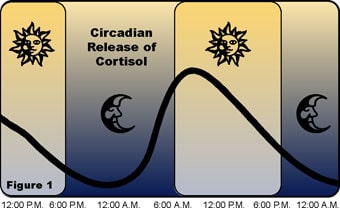Adrenal Stress Test
(Interactive Balances amongst Hormones)
Your body has a built-in system designed to keep you healthy and vital well into your early 100s. If you understand how this built-in system works then you can live well, symptom-free, for most of your years. If you are symptomatic, you need to know that the body is still on automatic pilot to self-repair. If you are unhealthy, you will find healing by focusing on effectively turning on your body’s regenerative processes.
Using your saliva as a diagnostic tool, you can implement individually appropriate changes to your life to reach optimal health. In general, saliva testing of the adrenal glands offers a powerful tool to evaluate gastrointestinal problems, stress-related and hormone-related diseases, and the overall wellness of the human body.
The most common reasons to use the Adrenal Stress Index:
- Chronic stress and related health issues
- Low immunity
- Skin problems
- Lack of vitality and energy
- Muscle and joint pain
- Hypoglycemia
- Common digestive disturbances
- Migraine headaches
- Osteoporosis
- Sleep disturbances
- Poor memory
- Low sex drive
- Low body temperature, thyroid issues
The adrenals are two small glands, each weighing 3 to 5 grams, that are located above the kidneys. The adrenals have one of the highest rates of blood flow per gram of tissue, and the highest content of Vitamin C per gram of any tissue in the body.
Each adrenal gland is composed of two separate functional entities. The outer zone, or cortex, accounts for 80% to 90% of the gland, and secretes adrenal steroids (Cortisol, DHEA(S) and Aldosterone). The inner zone, or medulla, comprises 10% to 20% of the gland, and secretes the catecholamines adrenaline and nor-adrenaline. Cortisol, DHEA and adrenaline are the three main adrenal stress hormones.
The Adrenal Rhythm & Its Importance
The human adrenal gland does not secrete its steroid hormones at a constant level throughout the day. The hormones are actually released in a cycle with the highest value in the morning and the lowest value at night. This is easily understood by looking at the graph below. This 24-hour cycle is called the circadian rhythm. An abnormal adrenal rhythm can influence many functions of the body, some of which are listed below.
1. Energy production
Abnormal adrenal function can alter the ability of cells to produce energy for activities of daily living. People who have a hard time rising in the morning, or who suffer with a low energy level during the day, often have abnormal adrenal rhythms and poor blood sugar regulation.
The maintenance of a stable blood sugar level depends on food choice, lifestyle, adrenal function and insulin activity. This panel measures stress hormones and insulin, to help ferret out causes offatigue, cravings and obesity.
2. Muscle & joint function
Abnormal adrenal rhythms are known to compromise tissue healing. Reduced tissue repair and increased tissue breakdown can lead to muscle and joint breakdown with chronic pain.
3. Bone health
The adrenal rhythm determines how well we build bone. If the night cortisol level is elevated and the morning level is too high, our bones do not rebuild well, and we are more prone to the osteoporotic process. Stress is the enemy of the bones. In postmenopausal women, the effect of stress worsens due to the female hormone imbalances.
4. Immune health
Various immune cells (white blood cells) cycle in and out of the spleen and bone marrow for special conditioning, and possible nourishment and instructions. This immune system trafficking follows the cortisol cycle. So, if the cycle is disrupted, especially at night, then the immune system is adversely affected.
Short and long-term stress is known to suppress the immune response on the surfaces of our body as in lungs, throat, urinary and intestinal tract. With the reduction in the surface antibody (called secretory IgA), the resistance to infection is reduced and allergic reactions are believed to increase.
5. Sleep quality
The ability to enter REM sleep cycles, i.e. regenerative sleep, is interrupted by high cortisol values at night and in the morning. Chronic lack of REM sleep can reduce the mental vitality and vigor of a person and induce depression.
6. Skin regeneration
Human skin regenerates mostly during the night. With higher night cortisol values, less skin regeneration takes place. So, a normal cortisol rhythm is essential for optimal skin health (See Figure 2).

7. Thyroid function
The level of Cortisol at the cell level controls thyroid hormone production. Quite often, hypothyroid symptoms such as fatigue and low body temperature are due to an adrenal maladaptation.
8. Grain intolerance & stress
About 12-18% of the U.S. population suffers from a genetic intol- erance to grain. Specifically, a high incidence occurs in Celtic, Germanic, and Nordic derivation. The gut becomes inflamed within 30 minutes after consuming the grains and this can lead to an adrenal stress response, increased cortisol and reduced DHEA.


